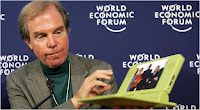Research released today by Save the Children UK says that the UN Central Emergency Response Fund (CERF), which was created almost a year ago to accelerate funding for agencies addressing rapid-onset emergencies, is inefficient and actually reduces the amount of money going directly to work on the ground.
The fundamental flaw of the CERF mechanism is that non-UN aid agencies, like Save the Children, are not allowed to receive direct funding from international donors, despite the fact they are usually first on the ground and deliver more than half of all emergency relief.
Basically, where NGOs like Save the Children traditionally get their money directly from donor governments to implement aid programs on the ground, the creation of large funding pools like the CERF mean the introduction of two new 'middle men' into the equation: the CERF itself (located in Geneva) and the UN agency dispensing the cash in country to the receiving NGO. I recently evaluated a similar fund called the Rapid Response Mechanism and found more positive results in terms of impact for beneficiaries. Donors tend to like the CERF and other UN-created funds because it fits with donor governments' desires to see a more robust, accountable UN. NGOs are divided on whether the new middle men are an added value, and Save is clearly opposed.
Their points about overheads are valid. Both UN agencies and the aid agencies carrying out project work are entitled to take a 7% cut of donor funding to pay for overheads and support. Save the Children’s research finds that, if both the UN agency and the implementing aid agency take overheads, only 86p per pound reaches the beneficiaries compared to 93p if non-UN agencies were given funding directly.
Save the Children is calling on the UN, and specifically the CERF board members, to cut out the middle-man and change the rules to allow aid agencies to access the fund directly in the same way as UN agencies.
Read the SC-UK report here: Exclusion of NGOs: The Fundamental Flaw of the CERF
A portal to my writing on stateless states, populations in danger and analog adventure
Wednesday, January 31, 2007
Tuesday, January 30, 2007
'Third World': Expect spacejunk from Davos
Davos luminaries will soon be launching laptops to Africa's poorest, or so runs the current saviour complex of today's tech gurus. An article from yesterday's NY Times offered a revealing glimpse into the type of utopian fantasies circulating at this year's Davos World Econcomic Forum.
"How to Wire the Third World" describes how today's technology CEOs dream of global relevance via the salvation of the world's poor. Their debates over how to solve the global 'digital divide' bear the mark of all starry-eyed social engineering endeavors, with the world's digitally illiterate providing a conveniently captive set of guinea pigs. Lack of food, water, education and safety for many in the developing world apparently matter little when you can throw a $100 laptop at the problem.

[An MIT rep demonstrates the $100 laptop]
I'm not one to call the kettle black, for the international development and disaster relief business is rife with fantasies and funding dedicated to a 'better world' for the most destitute of the planet. But at Davos, where so many rich people and self-proclaimed visionaries mingle annually, one would expect their underlings to have researched what prior forms of literacy, infrastructure and knowledge are required if a computer is to mean anything other than spacejunk to an subsistence farmer, a former child soldier, or the third wife of a man with 27 children to feed.
I'm soon headed to northern Uganda to research violations against children by the Lord's Resistance Army and the Ugandan National Army. I'll keep one eye skyward for any falling laptops--although such spacejunk is already common in rural Africa. I used to work with Dinka pastoralists in Southern Sudan who decorated their cattle by hanging discarded CDs from their horns. The CDs were recovered from the trash pits of international NGOs working to improve the lives of southerners during the war with Khartoum. Of course they had no idea what the CDs were, other than round reflective disks once used by foreigners. What would the Dinka do with laptops? Maybe trap wild game in the mighty jaws of the hinge mechanism connecting keyboard and screen.
Monday, January 08, 2007
Sudan, Chad and CAR: a cauldron for civilians

The nexus of conflict and refugee flows between Darfur, Eastern Chad and the Central African Republic continues to boil over, with tragic impact on civilian lives. The Council on Foreign Relations just released this concise summary of the dynamic and its humanitarian consequences.
Wednesday, January 03, 2007
Rwanda mediates between DRC govt and Nkunda

Rwanda is mediating in talks between a government delegation from neighbouring Democratic Republic of Congo and renegade Congolese General Laurent Nkunda, a Rwandan military spokesman said Wednesday. "This shows the confidence the Congolese government has in the government of Rwanda," he said.
Nkunda launched attacks on Congolese army positions near North Kivu's provincial capital Goma in late November, sparking on-off fighting.
Read the Reuters article here.
Subscribe to:
Posts (Atom)